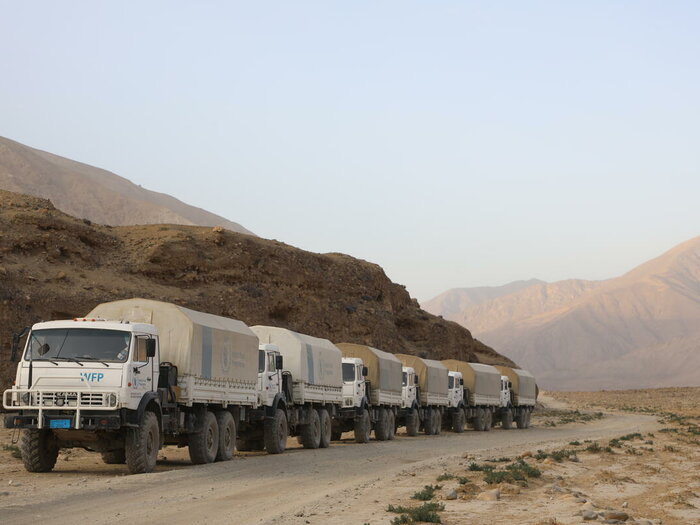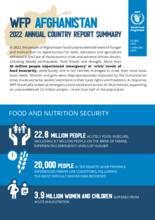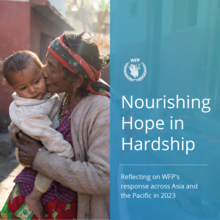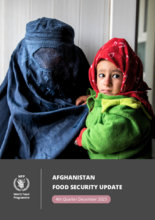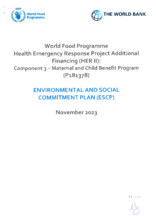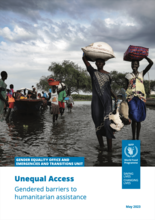Afghanistan
- 15.8 million
- people have acute food insecurity
- 1 in 3
- Afghans do not know where their next meal will come from
- 41.7 million
- population
Decades of complex and protracted conflicts, combined with a changing climate, gender inequalities, rapid urbanization, underemployment and the economic fallout of the COVID-19 pandemic pose considerable challenges in efforts to achieve the Sustainable Development Goals (SDGs), including SDG 2 on Zero Hunger and improved nutrition.
Over half of the country’s population lives below the poverty line, and food insecurity is on the rise, largely due to conflict and insecurity cutting off whole communities from livelihood opportunities. A total 15.8 million people are acutely food insecure, including hundreds of thousands who have been displaced by conflict since the beginning of the year.
What the World Food Programme is doing in Afghanistan
-
Emergency response
-
In the context of ongoing conflict and frequent natural disasters, WFP provides unconditional, fortified and nutritionally-balanced food assistance to vulnerable groups including people displaced by conflict, those affected by disasters, refugees, returnees from neighboring countries, and people affected by seasonal food insecurity.
-
Resilience building
-
WFP works together with communities to strengthen their ability to reduce the risk of disasters and adapt to climate change, while also creating employment opportunities both in urban and rural areas. This includes constructing or rehabilitating roads, canals, flood protection walls and reforestation, as well as vocational training.
-
Nutrition
-
WFP provides nutritional support tailored according to age, gender and vulnerability. In 2022, WFP has assisted 23 million people so far. Our targeted supplementary feeding programme assisted over 500,000 pregnant and breastfeeding women and over 1 million children under 5 suffering from or at risk of malnutrition.
-
Food systems
-
WFP is working with the Government and commercial partners to provide people throughout the country with access to nutritious food at affordable prices by supporting smallholder farmers, building local milling and fortification capacity, and strengthening value chains and food safety measures.
-
Advocacy for zero hunger
-
WFP supports government officials and partners in establishing zero hunger as a development priority and enhancing the coherence of their Zero Hunger policy through capacity strengthening, advocacy, public awareness and research, including the creation of Food Security and Nutrition committees at the province level to promote local ownership.
-
Capacity strengthening
-
To enhance the ability of the Government and the broader humanitarian and development community to respond to affected populations’ needs, WFP assists with the provision of assistance in beneficiary management, supply chain, information and communication technology, and facilities and information management.
Afghanistan news releases
Go to pageFind out more about the state of food security in Afghanistan
Visit the food security analysis pageOperations in Afghanistan
Contacts
Office
---
Kabul
Afghanistan

